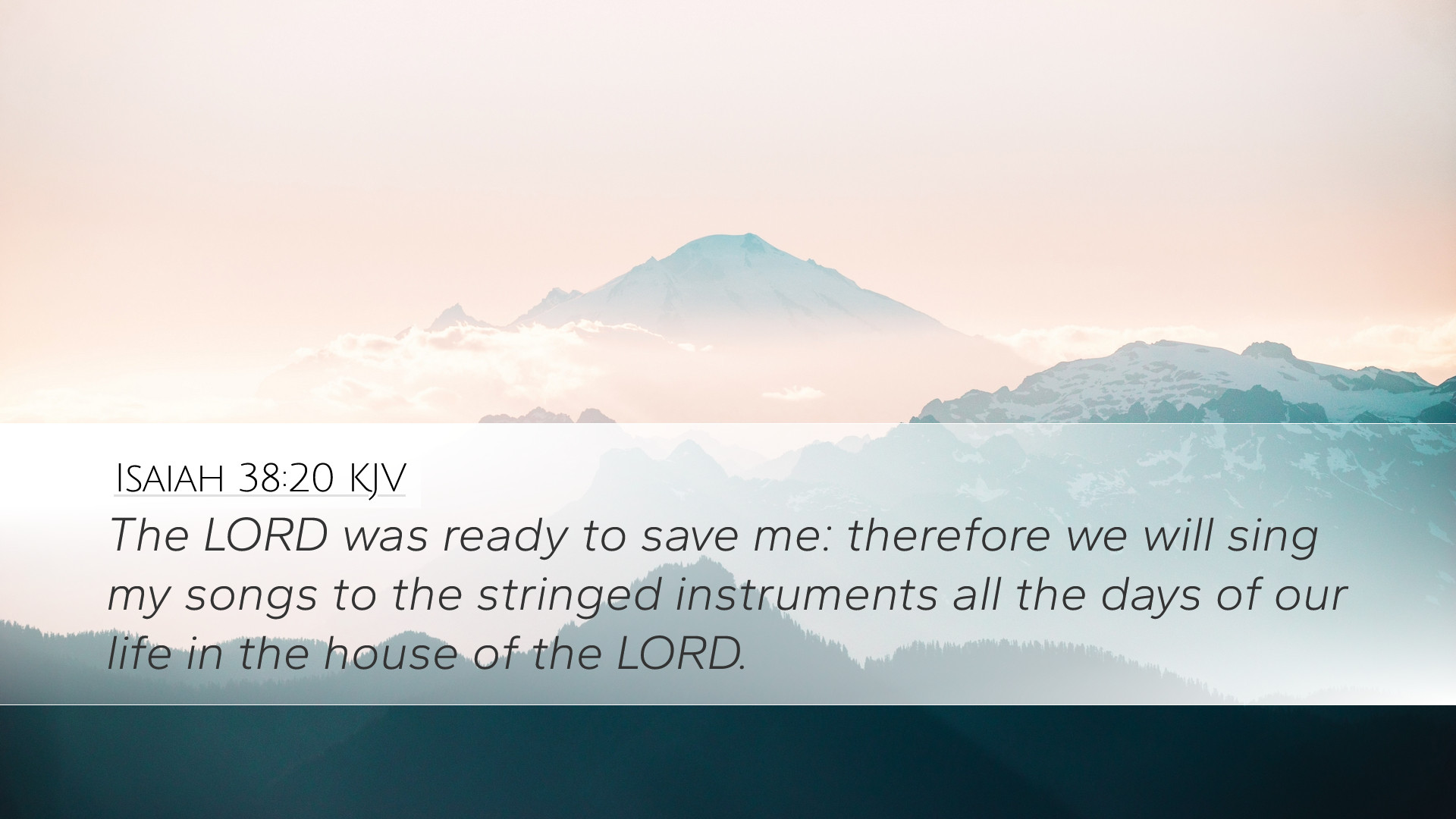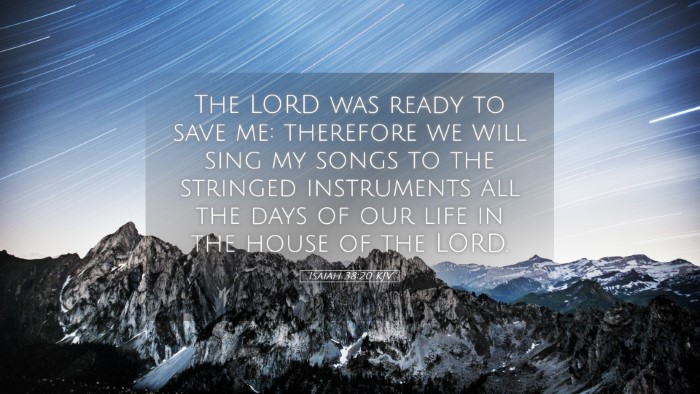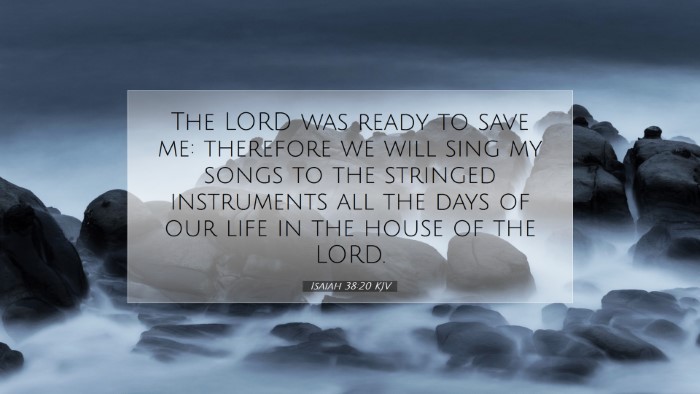Commentary on Isaiah 38:20
Isaiah 38:20 states: "The Lord was ready to save me: therefore we will sing my songs to the stringed instruments all the days of our life in the house of the Lord." This verse concludes a poignant episode in the life of King Hezekiah, reflecting themes of deliverance, worship, and the faithfulness of God.
Contextual Background
Hezekiah was king of Judah during a tumultuous time when the Assyrian empire was a dominant force threatening Israel and Judah. The chapter recounts Hezekiah's serious illness, his earnest prayer, and God's miraculous intervention. This incident illustrates God's mercy and readiness to save His people.
The Theme of Salvation
In this verse, Hezekiah proclaims that God was prepared to save him, an acknowledgment of divine intervention in his life. Matthew Henry comments that this readiness is central to the behavior of God towards His people. He continues, stating that the kings and leaders must recognize that their strength and security lies not in their own abilities but in the providential protection of God.
Worshipful Response
The response of Hezekiah to God's deliverance is to sing praises and to use instruments, indicating a lifestyle of continual worship. Albert Barnes emphasizes that true gratitude towards God is expressed through worship and music, reinforcing the idea that worship should be a central element in the life of believers.
- The Act of Singing: Hezekiah equates his healing with reasons to sing, implying that deliverance naturally leads to worship.
- Musical Instruments: The use of stringed instruments signifies a joyful and celebrative worship environment, aligning with Jewish culture where music played a significant part in both personal and communal worship.
Life in the House of the Lord
The phrase "all the days of our life in the house of the Lord" reflects a commitment to remain in the presence of God for the entirety of one's life. Adam Clarke interprets this as a dedication to continual service and acknowledgment of God's mercy. This presents an important theological principle: the resultant lifestyle that stems from encountering God's grace and salvation demands a constant return to His presence.
Theological Implications
This verse encapsulates rich theological concepts:
- Divine Readiness: The assurance of God's willingness to save emphasizes the accessibility of divine grace to those who earnestly seek Him in prayer.
- The Necessity of Praise: Believers are encouraged to respond to God's blessings with gratitude and worship, reinforcing the corporate nature of faith.
- Enduring Commitment: The idea of living in God's house indicates ongoing communion with Him, an essential theme in both Old and New Testament theology.
Practical Application
For pastors, students, theologians, and Bible scholars, Isaiah 38:20 serves as a reminder of the following truths:
- Encouragement in Trials: Just as Hezekiah experienced healing, believers today can trust in God's capacity to intervene in their circumstances.
- Continual Worship: There is a call to integrate worship into both individual lives and community gatherings as a direct response to God’s acts of salvation.
- Commitment to God's Presence: Life in faith is one that prioritizes remaining in God’s presence, a theme that should inspire devotional practices amongst believers.
Conclusion
Isaiah 38:20 encapsulates the profound relationship between divine salvation and human response through worship. Hezekiah's declaration is both a personal testimony and a communal instruction, urging generations to rely on God's faithfulness and to express gratitude through a life lived in worship. The insights from Matthew Henry, Albert Barnes, and Adam Clarke offer layers of understanding that enrich this verse, calling all readers to a deeper appreciation of their own relationship with God.


